WHAT VIETNAM GAINED AND LOST IN THE US-CHINA TRADE WAR
The trade war between the US and China is heating up. So what awaits Vietnam when it has close trade relations with both powers.
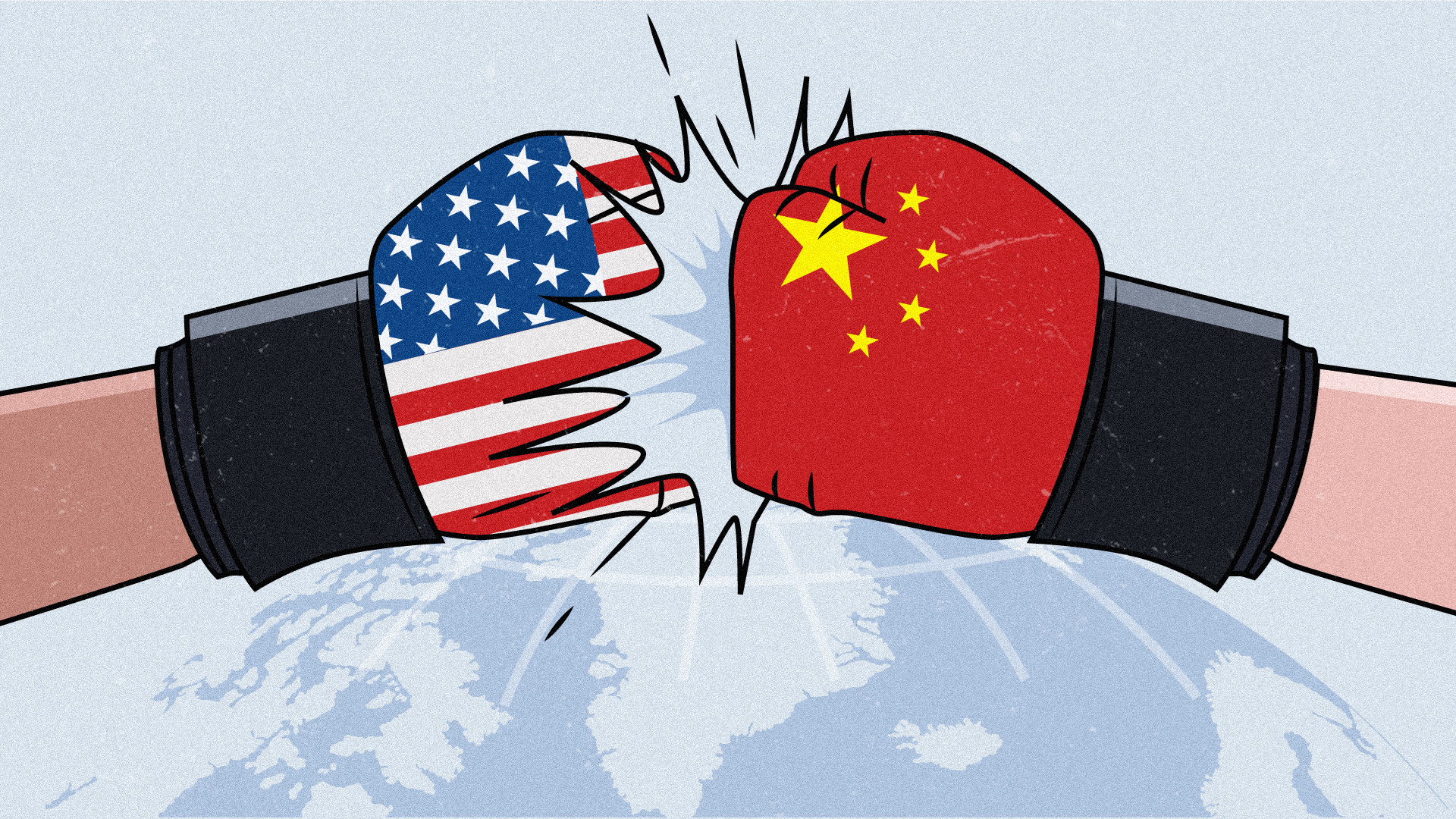
Entering the Year of the Tiger, the administration of US President Donald Trump has imposed many tariffs on goods imported from China such as washing machines and some steel products.
The situation escalated rapidly when on March 22 the US proposed to impose a 25% tariff on $50 billion of Chinese goods. This is part of Washington's response to long-standing accusations of China "stealing intellectual property" from the United States.
On July 6, President Trump officially imposed a 25% tariff on $34 billion of goods imported from China, including aircraft parts, TVs or medical equipment. China immediately responded tit-for-tat with a 25 percent tariff on 500 U.S. imports, including soybeans, beef, pork, cars or whiskey.
The U.S. continues to respond with $200 billion in goods from China that have been proposed to impose a 10% tariff, which is likely to take effect in September 2018.
So what does the above trade war mean for Vietnam?
Vietnam is a deeply integrated country in a highly interdependent global trading system. It is common for neither side to win a trade war. So will there be a few sides that will be winners and losers on a certain scale?
One thing that is widely recognized is that trade wars do more harm to the warring parties than they do good. And the consequences of the trade war are deeply rooted and have the potential to spread to other parts of the world.
It's important to look at the bigger picture. A trade war between the world's two largest economies is certainly not good news for Vietnam, which is actively integrating into the global economy and is associating itself with a new free global trading system.
Looking at the short term, there are many reasons to be optimistic, but in the long term, the trade war is bringing immediate risks to Vietnam.
5 REASONS TO BE OPTIMISTIC
In 2016, Vietnam recorded a trade surplus of 32 billion USD with the US, ranking 6th in the group of countries where the US has a trade deficit. Mr. Trump's coming to power has raised concerns that Vietnam will be strongly influenced by protectionism. However, this has not happened.
In May 2017, at a meeting between Prime Minister Nguyen Xuan Phuc and President Donald Trump, the two leaders overcame existing problems to move towards promoting bilateral trade.
When Mr. Trump visited Hanoi on the occasion of the 2017 APEC Summit, the two countries adopted a joint statement on 14 articles, including many provisions for the expansion of two-way trade and investment.
Therefore, the fear that Vietnam may become the target of trade protectionist measures is unfounded. This trend is likely to continue to be maintained based on two factors.
First, Trump's target is China because he calls it "intellectual property thieves." In August 2017, Trump launched an investigation and found that Beijing had helped domestic companies gain a competitive advantage by acquiring technology from U.S. companies. In addition, China has a history of not being very active in enforcing the Intellectual Property Law (IPR).
Regarding the implementation of IPR, Vietnam has also not done well in the past. However, Vietnam is making efforts to improve this situation. Vietnam first passed the law on intellectual property protection in 2005, then amended additionally in the roadmap to ensure WTO accession requirements.
This law continued to be guaranteed in 2010. However, enforcement often does not keep up with the law, and companies are pushing for enforcement to proactively protect their intellectual property. Vietnam is still continuing to innovate to strengthen this law.
The CPTPP Agreement and the Vietnam-EU Free Trade Agreement will be achieved together in 2018. It is likely that these two agreements will bring new vitality to the intellectual property protection law in Vietnam. Although the CPTPP has made some cuts from the TPP regarding intellectual property protection, it will still establish a common legal framework for the region to have the same strength as the current advanced intellectual property protection laws.
Meanwhile, the Vietnam-EU free trade agreement has a very long section on intellectual property rights. This means that Vietnam will tighten regulations on intellectual property. Vietnam, despite its not very positive past on intellectual property issues, may be seen as a potential ally of the United States in its efforts to improve intellectual property law.
Moreover, another benefit for Vietnam is that the commitment of both sides to defense cooperation can make the possibility of a trade dispute very small. During a recent visit to Vietnam, U.S. Secretary of State Mike Pompeo said, "In contrast to other countries in the region, U.S. actions will not be guided solely by U.S. economic interests."
In addition, it is impossible not to mention the emergence of new economic opportunities. The trade war could speed up the process of reducing dependence on China as labor costs and tax incentives fade away.
Many U.S. companies are operating under the "China plus one" formula, a strategy in which businesses often look to another country to reduce their dependence on China. Vietnam is a popular choice for the "plus one" position because of its political stability as well as its important geopolitical location.
In the context of American businesses increasingly having difficulty doing business in China, it is very likely that they will turn to Vietnam to solve the problem. Moreover, imports from China to the U.S. will inevitably fall, and this means that there will be a gap to be filled. Vietnam can completely fill that gap. Experts at Deutsche Bank Hong Kong predict that exports from Vietnam to the US will increase by about 1.7%.
In addition, Vietnam's economic growth is still maintaining a high level. Data from the General Statistics Office shows that from January 2018 to June 2018, Vietnam's economic growth is at 7.08%. This is a growth momentum with a very good foundation since 2017, the highest level since 2010.
THINGS TO WORRY
However, the picture will not necessarily be all pink. It will be some time before Vietnam really feels the effects of the trade war, and one way or another, Vietnam will definitely feel it.
Just look back at the 1997 Asian financial crisis to imagine what could have happened. When the new crisis broke out, Vietnam still recorded high economic growth even though neighboring countries were severely affected. It seems that the crisis only affects Vietnam in a very narrow scope, but over time that impact has gradually increased.
The decline in FDI and many effects on the Vietnamese economy are gradually emerging. However, at that time, Vietnam's economy was still in the gestation stage. 20 years later, Vietnam has integrated much more deeply into the global political economy, which means that the impact of the trade war will be even wider. deeper and longer.
The first negative impact on Vietnam is the weakening of the global free trade system. Vietnam has had to spend many years struggling to adjust its economic structure, especially when it joined the WTO. While that process has yielded good results, Trump's decisions are going against the spirit of the WTO and challenging the international trading system.
While the trade war will primarily revolve around China and the United States, Europe and Canada have also made protectionist tariff moves. The number of U.S. objections submitted to the WTO's dispute mechanism has skyrocketed. Vietnam will have to find ways to work with global partners such as Canada, Japan, China, etc. to ensure deeper compliance with WTO principles.
However, the potential risks from the new tariffs are relatively narrow and controllable. Moreover, intra-ASEAN trade is growing despite the escalation of the trade war and the impact on important sectors. Being an export-oriented country means that Vietnam is more dependent on FDI; This is especially sensitive to the volatile global market.
The new tariffs will also have a significant impact on cross-border trade between Vietnam and China. Vietnam's exports to the US are likely to increase, but Chinese companies are also likely to increase exports to Vietnam, making the trade balance between Vietnam and China even more uneven.The situation is worse.
This is worrying because Vietnam has struggled in recent years to diversify trade to balance its trade deficit with China. As mentioned, the trade deficit between the two countries is at a worrying level. In 2015 this figure was at 33 billion USD and in 2017 it was still at 22.7 billion USD.
There are concerns that China will use economic leverage to put pressure on Vietnam. However, this problem is much more complicated. As China is in a trade war with the United States, pressure from economic sanctions could hurt both sides. It is difficult to imagine the case of China starting to directly put pressure on the Vietnamese economy.
What China can do is use its economic weight to restrict Vietnam's commercial activities, as it did in March and July with exploration activities on oil fields in Vietnam's exclusive economic zone. This is very troublesome when Vietnam is trying to promote the maritime economy, which is an important factor for Vietnam's economic success.
With many goods imported from China, there are also concerns that Vietnamese businesses will not be able to compete with Chinese businesses. This can negatively affect the development of the domestic manufacturing industry. Chinese goods are usually more competitive thanks to their cost and variety. Vietnamese manufacturers need to continue to innovate and improve the competitiveness of their products.
In addition, disputes may arise between Vietnam, the United States and China over the issue of product origin. China and Vietnam currently have seven cross-border trade zones, part of China's Belt and Road Strategy. Chinese officials have said that economic disputes can promote the development of these trade zones, but they also say that Chinese-made goods here can be labeled as originating in Vietnam and thus avoided taxes into the US. This will cause headaches for Vietnamese lawmakers.
China will continue to be Vietnam's largest and most important partner for geographical reasons. However, there are two ways for Vietnam to look at the above problem. The first is to continue to follow WTO standards on the origin of goods. This requires Vietnamese businesses to have sufficient knowledge of international trade law.
Second, there is a need for a better cooperation model between Vietnam and China. Analysts have pointed out that border trade zones are often rudimentary and lack infrastructure. There needs to be more effective dialogues between the two sides based on common commercial interests and the development of a more effective cooperation model. In other words, Vietnam and China need to create a better cooperation framework so that both sides can get the maximum benefits from cross-border trade.
Geopolitically, the trade war will also bode ill for security issues as the economic interests of the United States and China decline. In the worst-case scenario, the price that China has to weigh in the event of a conflict will be considerably reduced.
FINAL THOUGHTS
The broader effects of the trade war are likely to be felt in the next few months. Minister of Industry and Trade Tran Tuan Anh once said: "Vietnam's economy is deeply integrated into the world economy, so it is also naturally affected by global economic fluctuations".
To minimize the negative impacts, Vietnam should continue to improve administrative procedures, improve the investment environment and accelerate the restructuring process of the industry and trade sector. Technical barriers still exist in increasing access to foreign markets, which Vietnam needs to do better when agreements such as the CPTPP or the Vietnam-EU free trade agreement are about to come into effect.
Although the trade war does not bode well for the future, Vietnam will still control the situation and continue to reform the economy on its trade liberalization roadmap. History has shown that politically, Vietnam has responded very well to the disputes of the big guys. Hopefully the same will happen economically.
Nicholas Chapma(news.zing.vn)
Related News
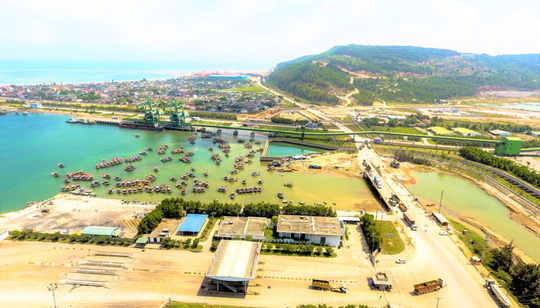
Foxconn pours $1.5 billion into Thanh Hoa to produce for Apple
14/2/2021
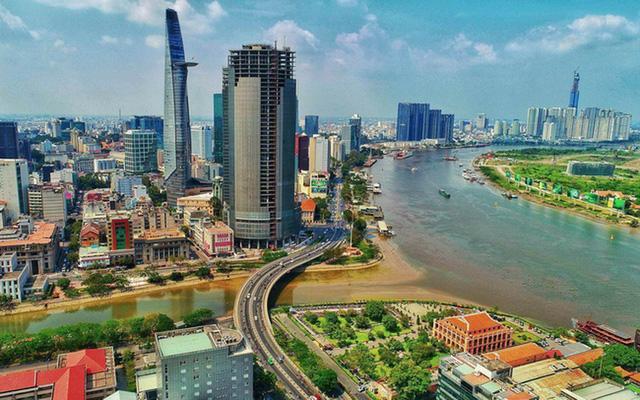
We have generated more than $1,200 billion in GDP
11/11/2020
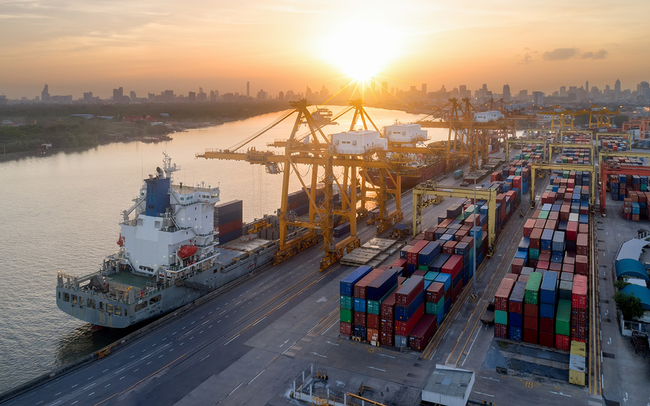
Vietnam's economic growth forecast for the 4th quarter of 2020 and 2021: Will recover in a V-shape, in 2021 it will increase by about 6.5 - 7%
21/10/2020
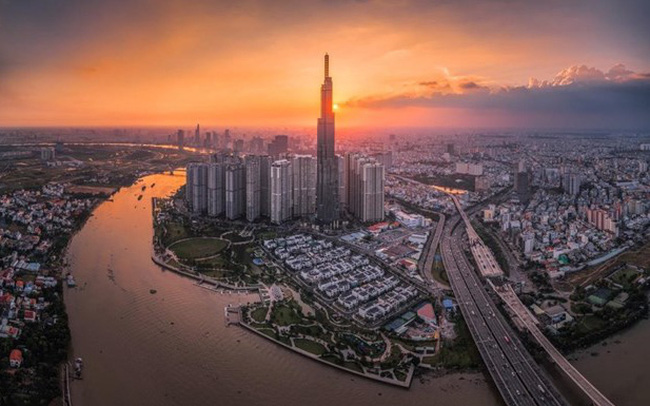
Standard Chartered: Vietnam's GDP growth forecast of 3% in 2020 and 7.8% in 2021
20/10/2020

Samsung's outstanding moves in Vietnam and other countries in the "year of Covid-19"
20/10/2020
Featured Articles

Miza Group donated 3 billion VND in response to the contest movement "The whole country joins hands to remove temporary houses and dilapidated houses" in Thanh Hoa
7/6/2025
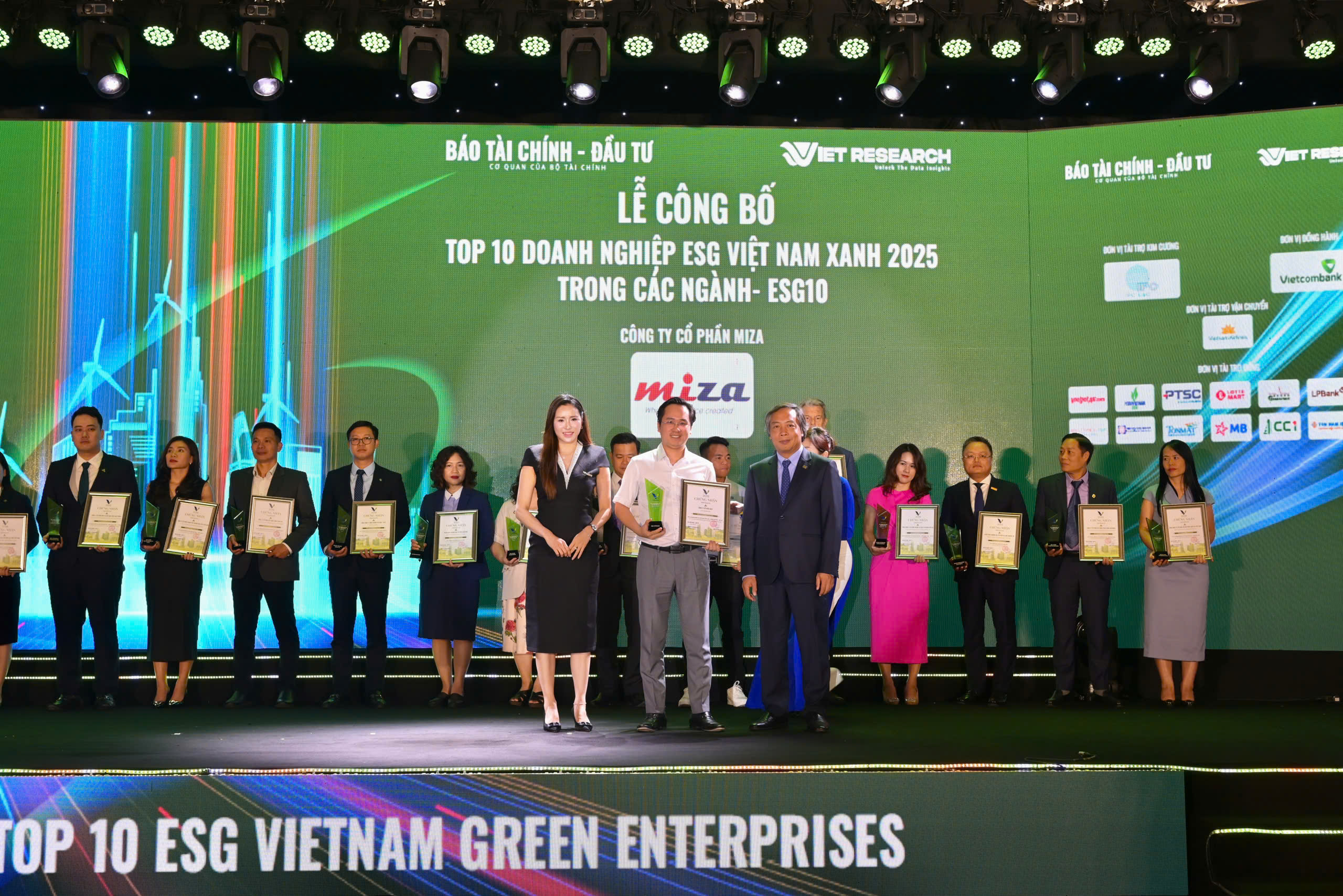
MIZA GROUP ENTERS THE TOP 10 GREEN VIETNAM ESG 2025 THANKS TO THE CIRCULAR ECONOMY DEVELOPMENT STRATEGY
27/6/2025

Miza (MZG) shares are officially listed on UPCoM
12/11/2024
